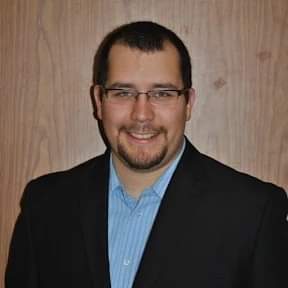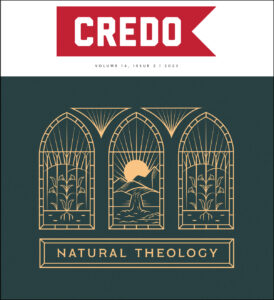T he apologetic philosophy of presuppositionalism from men like Cornelius Van Til has impacted an entire generation of Reformed apologetics. However, in Reforming Apologetics, J.V. Fesko examines the works of Abraham Kuyper, Karl Barth, Herman Dooyeweerd, and, primarily, Cornelius Van Til to demonstrate that these men at times misunderstood the people and ideas they critiqued, misapplied scriptural principles, and engaged in the very syncretism of which they accused others. Rather, Fesko argues, the Reformed tradition of apologetics, in step with the history of the Church, has consistently relied upon the book of nature, natural theology, and common notions to defend and articulate the Faith.
he apologetic philosophy of presuppositionalism from men like Cornelius Van Til has impacted an entire generation of Reformed apologetics. However, in Reforming Apologetics, J.V. Fesko examines the works of Abraham Kuyper, Karl Barth, Herman Dooyeweerd, and, primarily, Cornelius Van Til to demonstrate that these men at times misunderstood the people and ideas they critiqued, misapplied scriptural principles, and engaged in the very syncretism of which they accused others. Rather, Fesko argues, the Reformed tradition of apologetics, in step with the history of the Church, has consistently relied upon the book of nature, natural theology, and common notions to defend and articulate the Faith.
In chapter one, Fesko uses the Westminster Confession of Faith to argue that Reformed Theology has always had a commitment to natural theology, natural law, and common notions. In chapter two, he expounds upon the idea of common notions, drawing from Romans 2:14-16 to argue that common notions support the universal knowledge of God and of good and evil that all men share. Chapter three examines the works of John Calvin to argue that Calvin himself heavily utilized the concepts of natural theology and common notions and stands in continuity with the tradition of utilizing the book of nature. Chapter four works through the theology of Thomas Aquinas to understand his usage of common notions and natural theology, concluding that Aquinas, contra his critics, was no rationalist and that his views were not antithetical to the necessity of grace and Scripture but flowed from them.
In chapter five, Fesko criticizes the idea of Worldview Theory as that which unbiblically denies the common notions put forward by Scripture and relies heavily on the influences of Kant and idealism. Chapter six presents the most common presuppositional argument, the Transcendental Argument, to demonstrate its usefulness but also its limitations. Chapter seven argues against the charge that the use of natural theology is dualistic and Roman by demonstrating that the mere presence of dualisms is not dualistic. Rather, natural theology confirms and supports special revelation. Finally, in chapter eight, Fesko lays out a model of apologetics that places the discipline within the sphere of covenant theology while emphasizing the necessity of common notions and natural theology.
In Reforming Apologetics, Fesko puts forward several key ideas.
1. The Reformed Tradition Utilized Natural Law, Common Notions, and Human Reasoning
Fesko argues that the “light of nature,” as stated in the Westminster Confession of Faith, was an invaluable tool and guide to not only the Catholic tradition, but to the history of Reformation theology as well. Natural law and the common notions of God’s existence and basic morality, man’s ability to reason and know things about the world around him, and the content of revelation in nature render man without excuse for rejection and are used by the Word to regenerate the elect. Because man is made in the image of God, though fallen and unregenerate, he still maintains the image of God and thus is a rational creature. Although the Fall has “ravaged” man’s reasoning, common notions have an essential, passive role in bringing individuals to salvation; not of reasoning to the gospel, but of enabling man to comprehend the gospel’s claims.
2. Presuppositional Apologists Have Misunderstood Aquinas
Fesko claims that Van Til and Aquinas were not as polar opposites as Van Til himself believed! Click To Tweet Van Til and others often use Aquinas as an example of rationalistic, syncretistic, and autonomous human reasoning due to his appeal to common notions and natural theology. They often argue that Aquinas treats the non-Christian as if he were merely a misinformed creature rather than a rebellious covenant breaker. Instead, Fesko argues, Van Til and others have misunderstood Aquinas. He claims, as does even John Frame, that perhaps Van Til and Aquinas were not as polar opposites as Van Til himself believed! The proofs, for Aquinas, did not function as rationalistic endeavors before a neutral person. Rather, they served as a confirmation of what is received by faith on the authority of Scripture. In other words, rational discourse served a ministerial role in the thought of Aquinas, rather than a magisterial one, making clear sacred doctrine rather than proving it. Aquinas begins his proofs with a discussion of Romans 1:20 and, because Scripture discusses how creation points to Creator, proceeds to develop several arguments. Further, Aquinas was quite clear on the necessity of grace for faith, but also emphasized the need for natural knowledge in order to comprehend faith.
3. The Scholastic Method Was a Process, Not a Conclusion
Though “Scholasticism” is heavily criticized by modern theologians, Fesko points at that Scholasticism was not a system of beliefs, but a method that did not predetermine outcomes. Scholasticism began with lecture and then moved to reflection and inquiry with questions and answers. It examined questions from both pros and cons and arrived at a conclusion. Thomas Aquinas was one such example and Calvin and many others utilized this same method.
4. The Worldview Concept Is Itself a Syncretistic Concept
Presuppositionalists argue that, unless one starts with a Biblical worldview, one cannot have true knowledge of the world. The ontological Trinity must be presupposed and all of life must be seen from that presupposition. Thus, the worldviews of Christians and non-Christians stand in antithesis to one another from the start and so they cannot share common beliefs, knowledge, or values.
Fesko argues, however, that the very concept of worldviews is synthetically borrowed from German idealism and that it is unbiblical. In spite of the claims made against classical apologetics – that it is dualistic and borrows from ungodly philosophy – Fesko argues that presuppositionalism has also, in a sense, plundered the Egyptians by utilizing the concept of worldviews. He draws a distinction between worldviews as a broad way of seeing the world from various religious perspectives and what he calls Historic Worldview Theory (HWT). Though all people have ways of looking at the world informed by beliefs, by demanding that worldviews be all-encompassing under a single unifying principle, HWT makes worldviews so isolated from one another that it destroys the biblical concepts of common notions.
By contrast, Fesko demonstrates that the biblical writers, from Moses and the Code of Hammurabi to Paul at Mars Hill, utilized what non-Christians knew to argue for the Christian faith. Though the Scriptures give us a view of the world, Fesko contends that this view is not exhaustive and allows for common notions between Christians and non-Christians as image-bearers of God. Ironically, though he rejected the idea of common notions, Van Til himself agreed that the image of God constituted a common ground between Christians and non-Christians. It seems he objected to the terminology because of its association with Rome.
5. Transcendental Arguments Are Great, But Are Not Exhaustive of Reformed Apologetics
The primary apologetic weapon for presuppositionalism is the Transcendental Argument (TAG). This argument, Fesko maintains, is firmly rooted in HWT. Because non-Christian worldviews are completely antithetical, there are no common notions to which a Christian can appeal and thus the Christian must argue from the impossibility of the contrary. The existence of God is necessary to account for the coherence of the world. Without it, the laws of logic, uniformity of nature, and moral laws are incoherent. One cannot prove the existence of God, but must presuppose it to justify reality, the way one must presuppose the existence of boards under a floor.
Fesko argues, the Reformed tradition of apologetics, in step with the history of the Church, has consistently relied upon the book of nature, natural theology, and common notions to defend and articulate the Faith. Click To Tweet Fesko does not deny that transcendental arguments have value. What he denies is that such arguments are the only legitimate arguments for Christians to make or that they are some sort of “silver bullet” that trump all other arguments. Further, he demonstrates that while Van Til rejected reasoning from “below” to “above” or from effect back to cause, that is exactly what the TAG is doing, in ways very reminiscent of Thomas Aquinas’s second and third way.
I write this review as one who has been “there and back again” in my apologetic philosophy. I began my study in high school from an evidentialist standpoint. After college, however, I read the works of Van Til and his disciples and became convinced that apologetics must not treat the non-Christian as a neutral judge of evidence but as one who is actively suppressing the truth in sin. Apologetics must present a cohesive worldview, which the non-Christian denies but cannot consistently live without, and must recognize the role of presuppositions in interpreting evidence. However, in my doctoral studies, in which I read massive amounts of primary sources, I came to many of the same conclusions as Fesko: Aquinas was framed! Fesko is spot on that Van Til and others have not always appreciated the points Aquinas was making. Aquinas was not arguing that man can sit in judgment upon God, that man can reason unaided to God, or that natural theology functions without Scripture. Rather, he argued that nature and reason demonstrate what Scripture says to be true.I came to many of the same conclusions as Fesko: Aquinas was framed! Click To Tweet
Further, Fesko’s analysis of the importance of Romans 2:14-16 for common notions is vital. The point Paul makes is that all men, whether Jew or Gentile, are justly condemned because they know God exists and that there are moral laws they have broken. This means the non-Christian must be able to know things and make logical inferences, whether he epistemologically assumes the authority of Scripture or not. True, the world must ontologically be as Scripture says for man to be able to reason, but Van Til and others go too far by extending this to epistemology. Man can know things in spite of his epistemology because, being made in the image of God, there are common notions.
While Fesko’s point that the “worldview” concept can be taken too far is important, I worry that he has not taken it far enough. It is true that there are common notions between Christians and non-Christians such that they can use language, logic, and make moral judgments. However, it is also true that worldview beliefs shape and even determine other beliefs. If a person’s worldview is naturalistic, all evidence will be interpreted naturalistically and vice versa. Van Til’s point that Christianity provides the only coherent worldview is a vital point to make. The naturalist will attempt to make sense of the world via a naturalistic worldview, but such a worldview is self-defeating and the apologist should point this out and demonstrate the coherence and necessity of a biblical worldview.
Nonetheless, Fesko has written a much-needed response to those who would reject the historic use of natural theology and the doctrines of common notions. I would recommend this book for those who wish to balance the insights of Cornelius Van Til and others with the rich apologetic heritage and insight of those who used nature the way the biblical writers did: to call unbelievers to repentance and believers to greater faith and worship.


